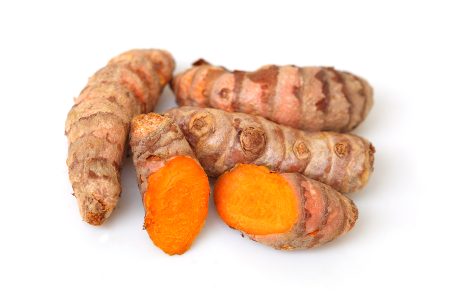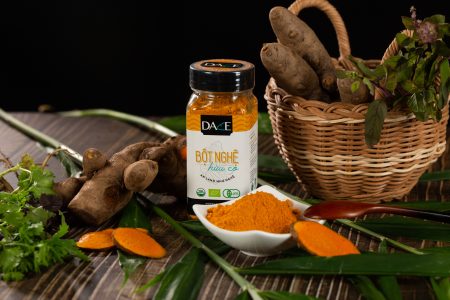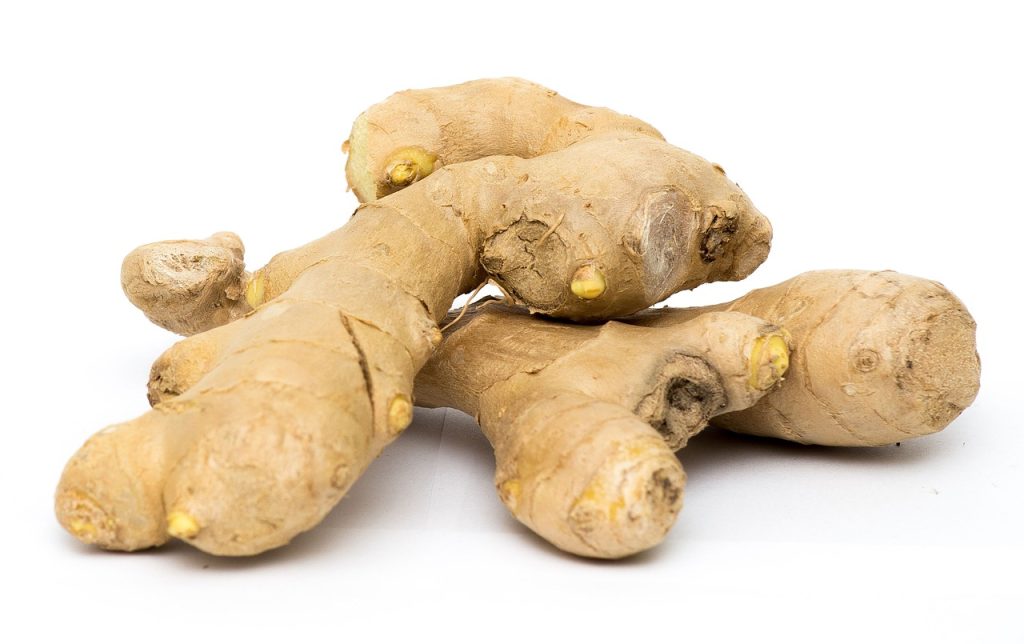Organic Turmeric: Golden Benefits for Health and Sustainable Living

Turmeric (Curcuma longa), often called the “golden spice,” has long been cherished not only for its warm color and flavor but also for its impressive medicinal value. Across centuries and cultures, turmeric has been used as food, medicine, and even as a natural dye. Modern science has confirmed what traditional medicine has known all along: turmeric, thanks to its active compound curcumin, is a powerful ally for overall wellness.
The star compound of turmeric is curcumin, which makes up about 2–8% of dried turmeric root. Curcumin is widely recognized for its anti-inflammatory and antioxidant powers. But turmeric is more than just curcumin – it also contains volatile oils and other bioactive compounds that work together to enhance its overall health-promoting effects.
The Powerful Health Benefits of Turmeric
Anti-inflammatory and antioxidant support
Chronic inflammation is linked to serious health problems such as heart disease, arthritis, diabetes, and even cancer. Curcumin helps the body control inflammation in a way similar to some medications but with fewer side effects. At the same time, turmeric acts as a natural antioxidant, protecting cells from damage and slowing down the aging process.
Brain and mental health
Turmeric has been studied for its potential in protecting the brain from degenerative diseases such as Alzheimer’s. Curcumin can cross the blood-brain barrier, reduce stress on nerve cells, and boost a special protein called BDNF, which supports learning and memory. Early research also suggests turmeric supplementation can improve mood and help manage depression.
Heart health
Curcumin improves the function of the endothelium (the lining of blood vessels), helping regulate blood pressure and blood clotting. It also lowers LDL cholesterol and reduces oxidative stress, two key risk factors for heart disease. Studies even show turmeric’s effect on vascular function may rival aerobic exercise.
Digestive wellness
For centuries, turmeric has been used to aid digestion. It stimulates bile production, reduces bloating, protects the stomach lining, and supports gut health. People suffering from irritable bowel syndrome (IBS) or acid reflux often report relief when turmeric is included in their diet.
Potential role in cancer prevention and diabetes management
Laboratory studies show curcumin can inhibit cancer cell growth, reduce tumor formation, and enhance the body’s natural defense against abnormal cell activity. Additionally, turmeric may improve insulin sensitivity and lower blood sugar levels, making it a valuable ally in managing type 2 diabetes.
Joint, skin, and immune support
Turmeric is often used to ease arthritis pain and stiffness thanks to its anti-inflammatory properties. In skincare, turmeric brightens complexion, reduces acne scars, and helps treat conditions like eczema. It also boosts immune resilience against infections.
What Is Organic Turmeric?
While all turmeric carries health potential, organic turmeric takes it to another level. Organic turmeric is grown without synthetic pesticides, herbicides, chemical fertilizers, or genetically modified organisms (GMOs). Instead, it follows natural farming methods that preserve soil health, protect water resources, and enhance biodiversity.
To be labeled as organic, turmeric must be certified by recognized organizations such as USDA Organic, EU Organic, or JAS (Japan Agricultural Standard). This ensures the product is free from harmful residues and grown in harmony with the environment.
Choosing organic turmeric means choosing purity, safety, and sustainability. Unlike conventional turmeric that may contain pesticide residues or even harmful adulterants like lead chromate, certified organic turmeric is guaranteed to be clean and chemical-free. In Vietnam, companies like DACE have become trusted suppliers of organic turmeric, offering a full range of products including fresh turmeric roots, turmeric powder, and dried turmeric slices. All are grown in certified organic farming areas, where fertile soils and traditional cultivation methods ensure naturally high levels of curcumin and a richer aroma.

The benefits go beyond purity. Organic turmeric is often more nutrient-dense, thanks to healthy soils enriched by organic fertilizers and sustainable farming techniques. Many studies suggest organic crops contain higher antioxidant levels, and turmeric is no exception. Consumers also notice that organic turmeric has a deeper color and stronger, earthier flavor – a sign of its natural essential oils being fully preserved.
Applications of Organic Turmeric
Culinary uses
Organic turmeric is a staple in kitchens worldwide. It adds color and flavor to curries, soups, rice, noodles, and stir-fried dishes. It is also blended into wellness drinks such as golden milk (turmeric latte), smoothies, and herbal teas. Food producers rely on organic turmeric powder as a natural coloring and flavoring in cereals, sauces, baked goods, and beverages.

Dietary Supplements
With its high curcumin content, organic turmeric is widely used in the supplement industry. It is formulated into capsules, tablets, and liquid extracts to support joint health, immunity, and inflammation control. These convenient formats make turmeric accessible to people who want consistent health benefits every day.
Beauty and skincare
Organic turmeric has become a natural ingredient in skincare products, including face masks, creams, and serums. Its antioxidant and anti-inflammatory properties help brighten the complexion, reduce acne scars, and combat premature aging.
By choosing organic turmeric, you’re not only ensuring the safest, most nutrient-rich form of turmeric but also contributing to sustainable agriculture and environmental protection. It’s an investment in both personal health and planetary well-being.



